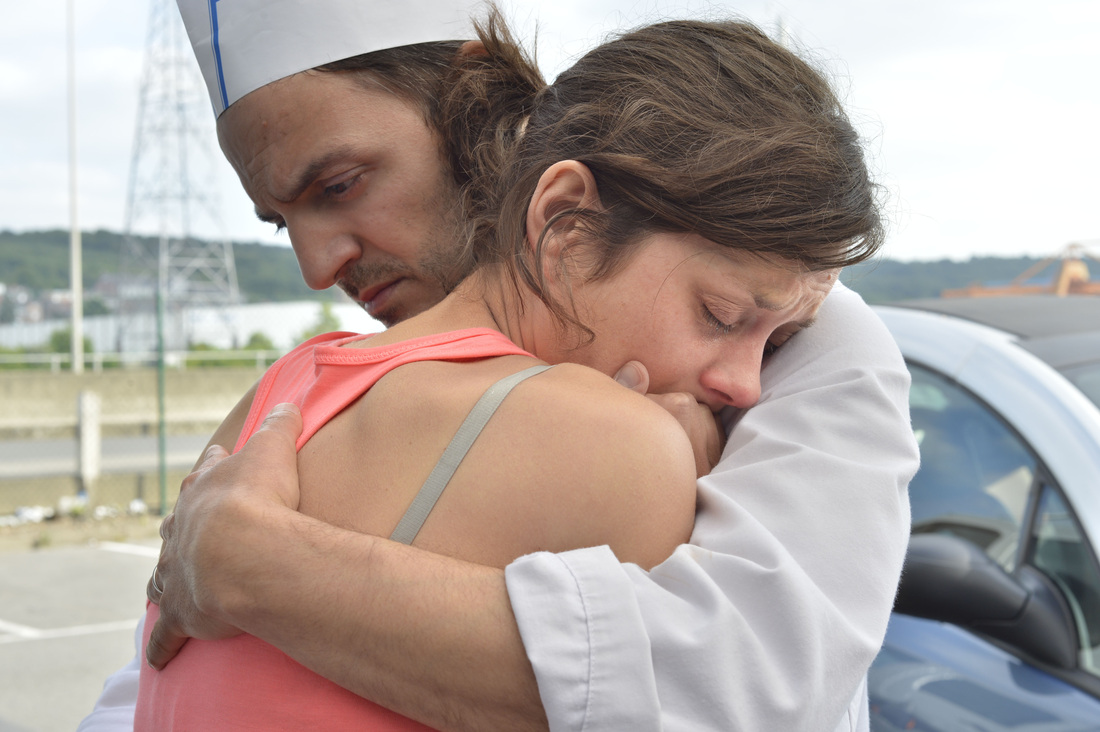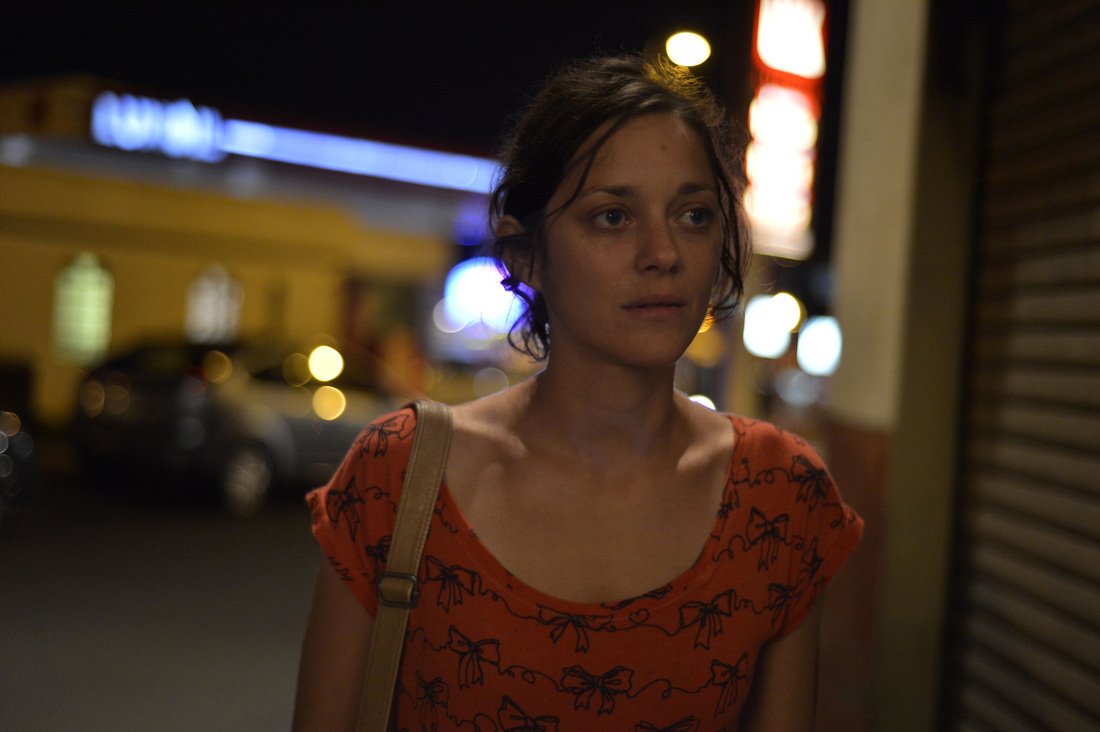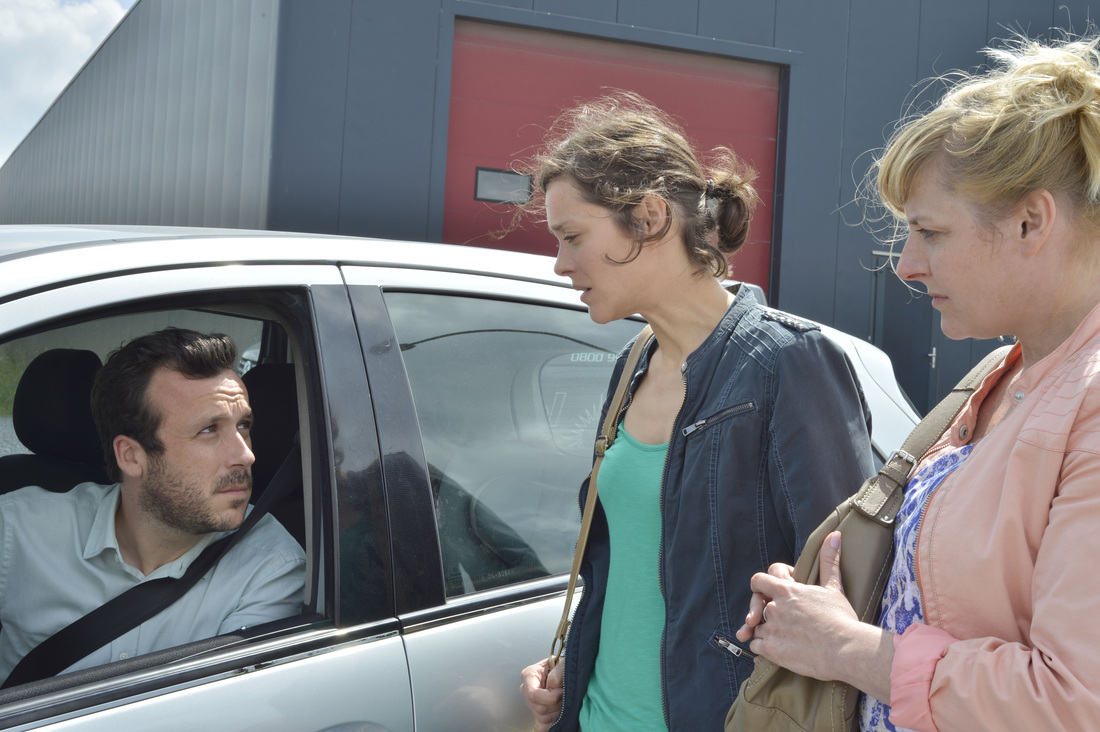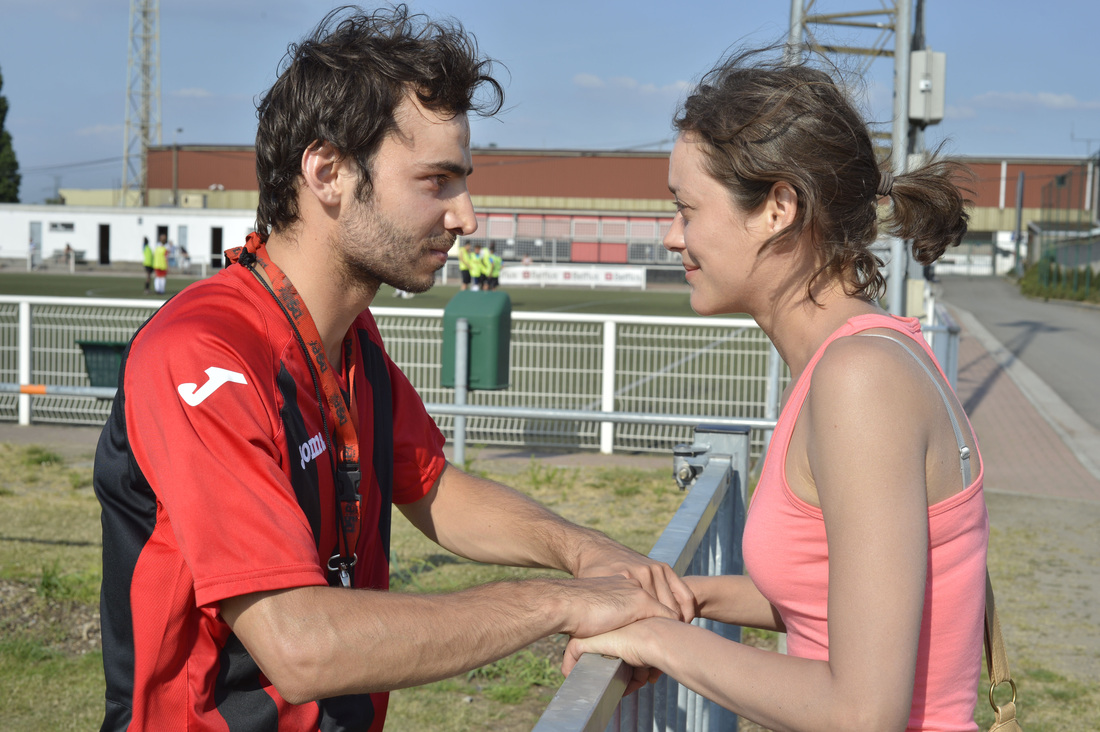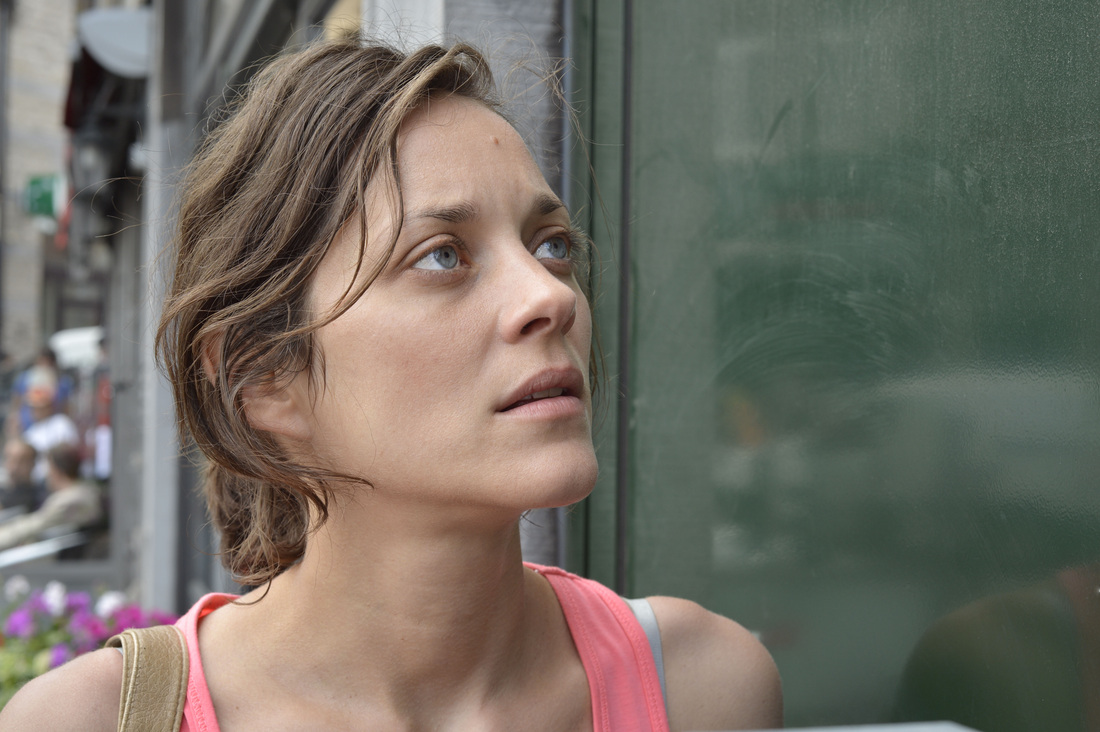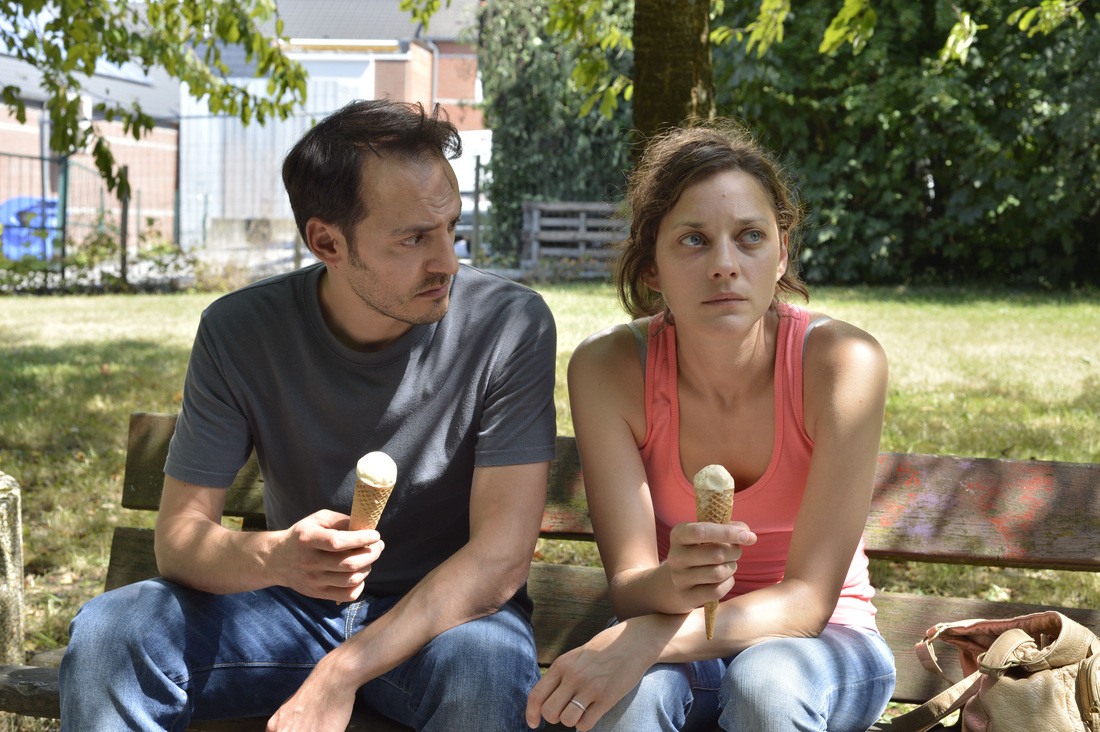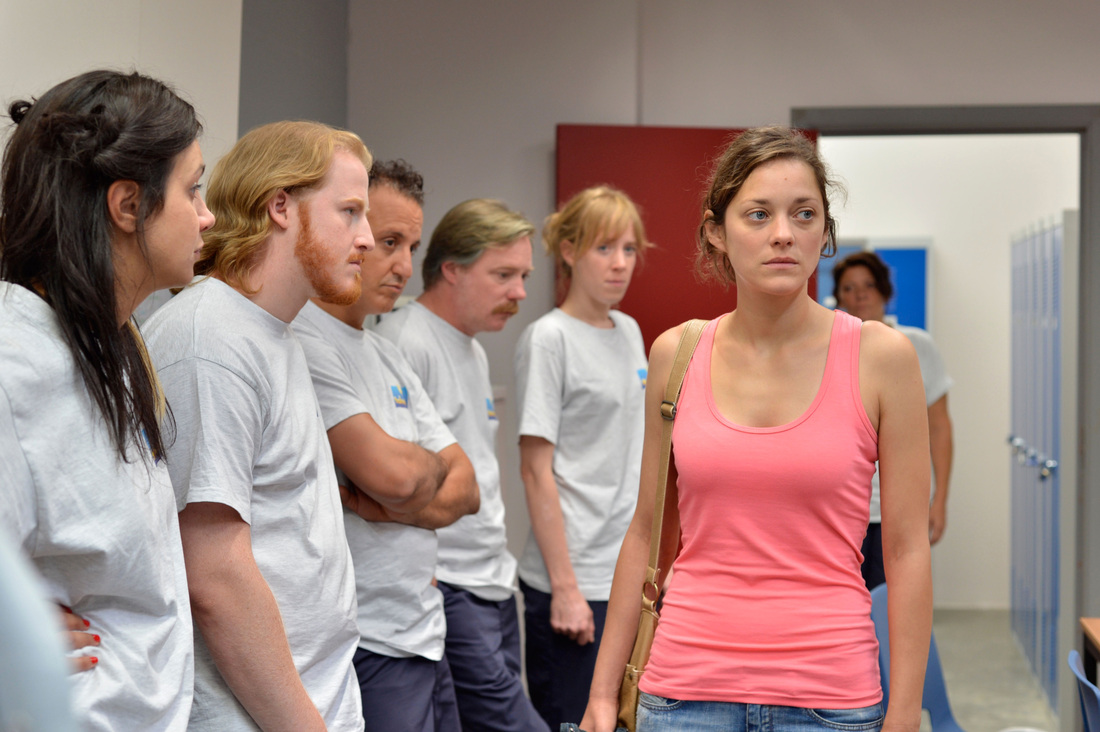|
★★★★½
24 June 2014
This article is a review of TWO DAYS, ONE NIGHT.
|
“You mustn’t cry,” Sandra Byu (Marion Cotillard) to herself
Social realism often fills the mainstream cinema-goer with dread - Why would I allow myself to be put through the ringer when life is hard enough? - One imagines the question posed. Now more than ever, when entertainment sidesteps art (the look at the truth of the world), and plays to wish-fulfilment and numbing escapism, appraising our treatment of each other is necessary. Even soap operas like EASTENDERS wallow in outlandish misery, devoid of gravitas and indifferent to credible cause and effect. Then along comes Ken Loach making IT’S A FREE WORLD or Amma Asante turning in A WAY OF LIFE or Clio Barnard offering THE SELFISH GIANT or Icíar Bollaín slamming down EVEN THE RAIN. And of course the Dardennes brothers are true masters at holding up a mirror.
Social realism often fills the mainstream cinema-goer with dread - Why would I allow myself to be put through the ringer when life is hard enough? - One imagines the question posed. Now more than ever, when entertainment sidesteps art (the look at the truth of the world), and plays to wish-fulfilment and numbing escapism, appraising our treatment of each other is necessary. Even soap operas like EASTENDERS wallow in outlandish misery, devoid of gravitas and indifferent to credible cause and effect. Then along comes Ken Loach making IT’S A FREE WORLD or Amma Asante turning in A WAY OF LIFE or Clio Barnard offering THE SELFISH GIANT or Icíar Bollaín slamming down EVEN THE RAIN. And of course the Dardennes brothers are true masters at holding up a mirror.
TWO DAYS, ONE NIGHT is a fascinating, timely take on capitalism; a satiating social realist drama, quietly infused with hope.
As much as it is possible to dowdy down Cotillard, sans guffawing in incredulity, her Sandra is emotionally struggling to maintain head above water. Opening on her sleeping presence, a mobile phone goes off gratingly in the background. Filling in the gaps ahead of the film, unshowily drip feeding information, concentration is naturally engaged to piece together her circumstances. Racing to hunt for a villain, including herself, to hang blame for Sandra’s malaise on, shows how the preconditioning of morally simplistic fare is dumped on us. Settle into this look at the modern West, as a selfish, self-obsessed place, breeding the concept of the individual over the pack, so they can be separated off from the herd and picked off easily. Gentle optimism comes from the humanity seeping in around the edges.
The conceit is simple: Sandra has been made redundant from her job at Solwal, a small Belgian solar power company. Due to Sandra’s sick leave, as result of depression, the factory dubiously found it needed 16 workers instead of 17; so the boss Dumont (Batiste Sornin) gave the workforce a vote: Have a 1000 Euro bonus or allow Sandra to be kept on. Morally cruel, and cowardly in conception, the absence of union protection or any kind of solidarity is starkly shown. Intriguingly, Sandra’s diagnosed depression is an illness not consistently sympathised; is it here a modern crutch, a lack of character or genuine mental illness?
Managing to convince Dumont to reconvene the vote after the weekend, Sandra and her small band of supportive family and friends have two days and one night to convince those that voted against her to change their minds. Being able to pay the mortgage is on the line. Most have their own valid struggles too. Efficiently presenting a wide spectrum of humanity in 95 minutes, the filmmakers wow in their use of repetition on a quest for self worth and compassion.


